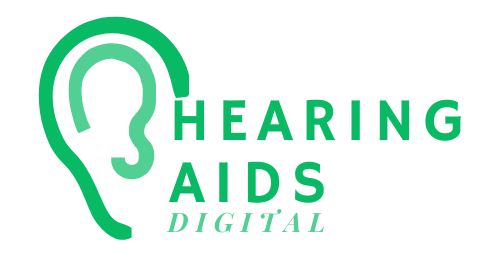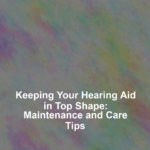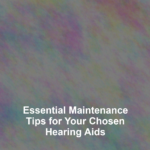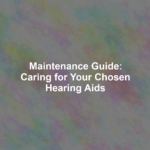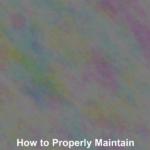Sure, you could treat your state-of-the-art hearing aids like a pair of old socks, but unless youG??re fond of spending a small fortune on replacements, you might want to consider a tad more tender loving care. YouG??ve invested in these tiny technological marvels to enhance your daily life, and itG??s essential you maintain them just as you would any other valuable device.
By adopting a simple daily cleaning routine, youG??re not only protecting your investment but ensuring the clarity of sound that youG??ve come to rely on. And letG??s not forget about the pesky enemy of all electronics: moisture. YouG??ll need to arm yourself with strategies to keep your devices as dry as the humor in this paragraph.
As for the batteries, they demand your respect and timely attention, unless you enjoy the sound of silence at inopportune moments. But where do you store your auditory sidekicks when theyG??re not perched in your ears? And when was the last time someone with a professional eye took a gander at them? Stick around, and youG??ll uncover the answers to keep your hearing aids in tip-top condition, ensuring that not even the softest whisper of maintenance advice will pass by unnoticed.
Daily Cleaning Routine
To ensure your hearing aid functions optimally, start each day by wiping the surface with a soft, dry cloth to remove any earwax or debris. This simple step prevents buildup that can muffle sound. ItG??s also crucial to check the microphone ports and the speaker for any blockages. Use a gentle brush designed for hearing aids to clear away any particles that mightG??ve settled in these areas.
Next, inspect the earmold for any discoloration or signs of wear. If youG??ve got a detachable earmold, you can usually clean it using mild soap and water, but make sure itG??s completely dry before reattaching it to your hearing aid.
DonG??t forget to open the battery compartment at night. ItG??s not just about conserving battery life; airing it out helps to reduce the effects of moisture, which can damage the internal components over time.
Moisture Protection Strategies
Protecting your hearing aid from moisture is crucial, as even a small amount of water can impair its functionality. To keep your device safe from the damp, youG??ll want to take some proactive steps.
Always remove your hearing aids before showering, swimming, or facing heavy rain. When youG??re not wearing them, store your hearing aids in a dry, safe place, preferably with a dehumidifier designed for electronic devices.
If youG??re caught in a surprise downpour or sweat excessively, itG??s vital to dry your hearing aids as soon as possible. Use a soft, dry cloth to gently dab away moisture. Avoid using a hairdryer or any direct heat source, as this can cause damage.
For nightly care, consider investing in a hearing aid dryer or dehumidifier. These units provide a safe environment to extract moisture while you sleep. They can also lengthen the lifespan of your hearing aids by preventing moisture damage over time.
Lastly, check the weather seals or gaskets on your hearing aids regularly. If you notice any wear or damage, get them replaced promptly to maintain a good moisture barrier. By following these strategies, youG??ll ensure your hearing aids stay in top shape, ready to assist you every day.
Battery Care and Replacement
While ensuring your hearing aids are dry is essential, itG??s equally important to regularly check and replace their batteries for optimal performance. Batteries are the lifeline of your hearing aids, and their care is crucial for uninterrupted hearing support.
HereG??s a concise guide to help you manage your hearing aid batteries effectively:
-
Check Battery Life Daily: YouG??ll want to monitor your battery life every day. If you notice a sudden drop in performance, itG??s time for a new battery.
-
Store Batteries Properly: Keep spare batteries at room temperature, away from metal objects, and in their original packaging to prevent premature draining.
-
Turn Off When Not in Use: Extend your battery life by turning off your hearing aids when youG??re not using them. Open the battery compartment to prevent moisture buildup and battery drain.
-
Handle with Clean Hands: Always handle batteries with clean, dry hands to avoid dirt and oil contamination, which can shorten their lifespan.
Safe Storage Solutions
Storing your hearing aids in a clean, dry place will safeguard their delicate electronic components and ensure their longevity. When youG??re not using them, itG??s best to keep your hearing aids in a dedicated storage case. This case should be moisture-resistant and hard-shelled to protect from physical damage. If your hearing aids didnG??t come with a suitable case, youG??ll find one at most hearing care providers.
Consider investing in a dehumidifying container or drying kit, especially if you live in a humid environment or sweat a lot. These products help remove any moisture thatG??s accumulated during the day, preventing corrosion and other moisture-related damage.
Always remove the batteries before storing your hearing aids for an extended period. This prevents battery drain and avoids the risk of battery corrosion damaging your devices. Keep the battery compartment open to air out and ensure any trapped moisture can evaporate.
Never leave your hearing aids in extreme temperatures, such as in a hot car or near a heating source, as this can warp the casing and damage the electronics. Likewise, donG??t store them in bathrooms or other damp areas where condensation can occur. By following these storage tips, youG??ll extend the life and performance of your hearing aids.
Regular Professional Check-Ups
Just as youG??d regularly service your car to ensure peak performance, itG??s essential to schedule professional check-ups for your hearing aids to maintain their optimal function. These visits are crucial for several reasons, and youG??ll want to make sure youG??re ticking all the right boxes to keep your hearing aids working as they should.
HereG??s what you can expect during a professional check-up:
-
Expert Cleaning: Your audiologist can give your hearing aids a thorough cleaning that goes beyond your daily routine. They can access and clean parts you mightnG??t be able to at home.
-
Firmware Updates: Technology constantly evolves, and so does the software that powers your hearing aids. Professionals can update your devices with the latest firmware to ensure theyG??re running efficiently.
-
Component Checks: TheyG??ll check for any signs of wear and tear and can replace filters or other small parts that may be worn out.
-
Performance Tuning: Your hearing needs may change over time. Regular check-ups allow adjustments to the programming of your hearing aids, ensuring theyG??re perfectly tuned to your current level of hearing.
Conclusion
Keep your hearing aids in tip-top condition by sticking to a daily cleaning routine.
Protect them from moisture and swap out batteries regularly to avoid any hiccups.
DonG??t skimp on storage; ensure theyG??re safely tucked away when not in use.
And remember, regular check-ups with a professional are crucial for optimal performance.
Take these easy steps, and youG??ll enjoy crystal-clear sound without any unnecessary interruptions.
Your hearing aids are an investmentG??treat them well!
